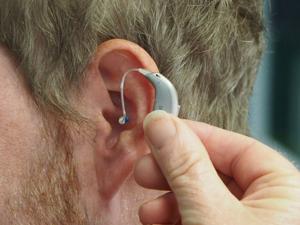A groundbreaking gene therapy technique is making waves in the medical community, offering the potential to restore hearing in individuals with congenital deafness or severe hearing impairment. This innovative approach, which has shown promising results in both children and adults, marks a significant advancement in the treatment of auditory disabilities.
Researchers have developed a state-of-the-art method that targets the genetic causes of hearing loss, providing a new avenue for those who have long relied on hearing aids or cochlear implants. The therapy, still in its experimental stages, has already demonstrated the ability to improve auditory function, sparking hope among patients and medical professionals alike.
Understanding the Science Behind the Therapy
The gene therapy works by delivering a functional copy of a gene directly into the cells of the inner ear. This process aims to correct genetic mutations that cause deafness. By using a viral vector, scientists can introduce the healthy gene into the cochlear cells, enabling them to produce the proteins necessary for hearing.
Dr. Emily Carter, a leading researcher in the field, explained, “This therapy targets the root cause of genetic hearing loss, rather than just alleviating the symptoms. It’s a paradigm shift in how we approach treatment for these conditions.”
“This therapy targets the root cause of genetic hearing loss, rather than just alleviating the symptoms.” — Dr. Emily Carter
Historical Context and Previous Treatments
Historically, individuals with congenital deafness have had limited options. Hearing aids amplify sound, but they do not address the underlying genetic issues. Cochlear implants, while effective for some, require invasive surgery and are not suitable for all patients. The development of gene therapy represents a potential leap forward, offering a less invasive and more targeted solution.
According to the World Health Organization, over 5% of the world’s population—approximately 430 million people—live with disabling hearing loss. The introduction of gene therapy could significantly impact this demographic, providing a new hope for improved quality of life.
Expert Opinions and Future Prospects
Experts in the field are cautiously optimistic about the future of gene therapy for hearing restoration. Dr. James Liu, an audiologist, noted, “While we’re still in the early stages, the results are promising. If further trials confirm these findings, it could revolutionize how we treat genetic hearing loss.”
“If further trials confirm these findings, it could revolutionize how we treat genetic hearing loss.” — Dr. James Liu
The therapy is currently undergoing clinical trials, with researchers closely monitoring its efficacy and safety. Initial results have been encouraging, but more extensive studies are needed to fully understand the long-term implications and potential side effects.
Implications and Looking Forward
The implications of successful gene therapy for hearing loss are profound. Beyond improving individual lives, it could reduce the economic burden associated with hearing impairment, including costs related to healthcare, education, and social services.
As research progresses, the medical community remains hopeful that gene therapy will become a standard treatment option, offering a new lease on life for those affected by genetic hearing loss. The next steps involve expanding clinical trials and securing regulatory approval, a process that could take several years but holds immense promise for the future.
In the meantime, patients and families affected by hearing loss are watching developments closely, eager for a breakthrough that could change their lives forever.
